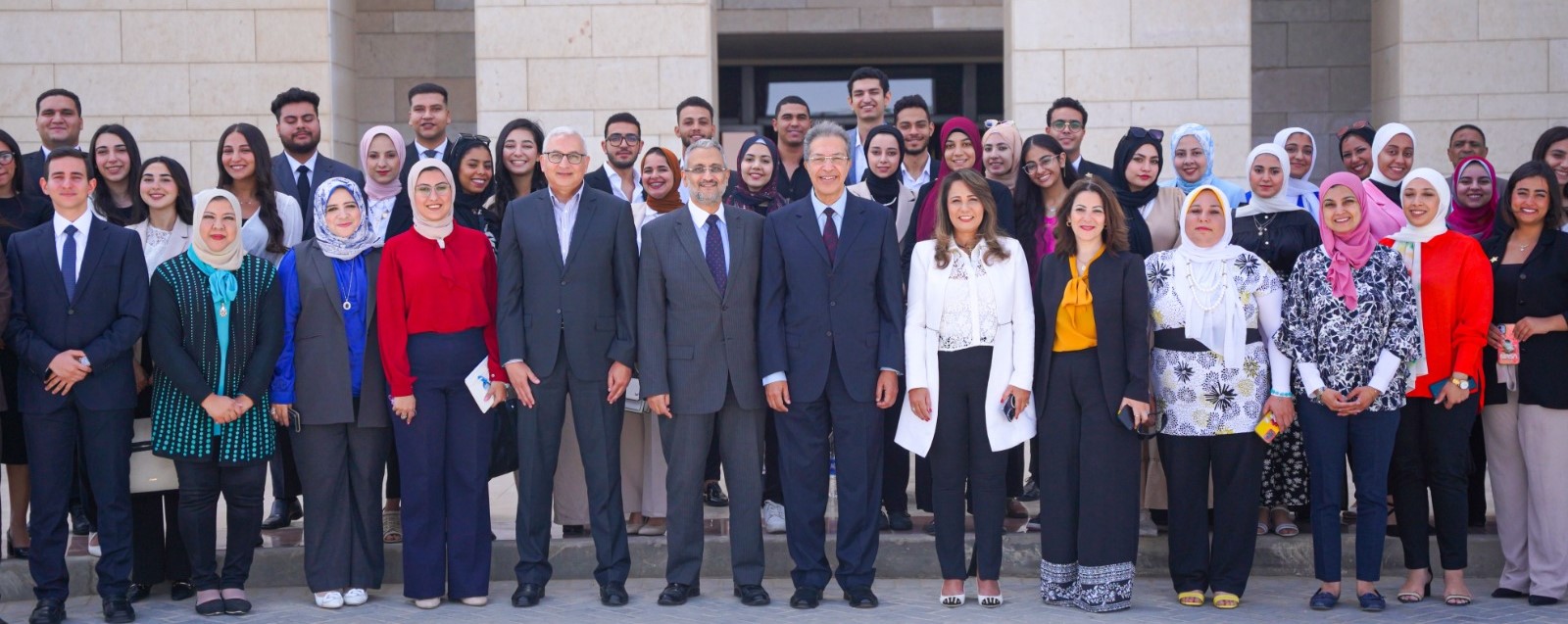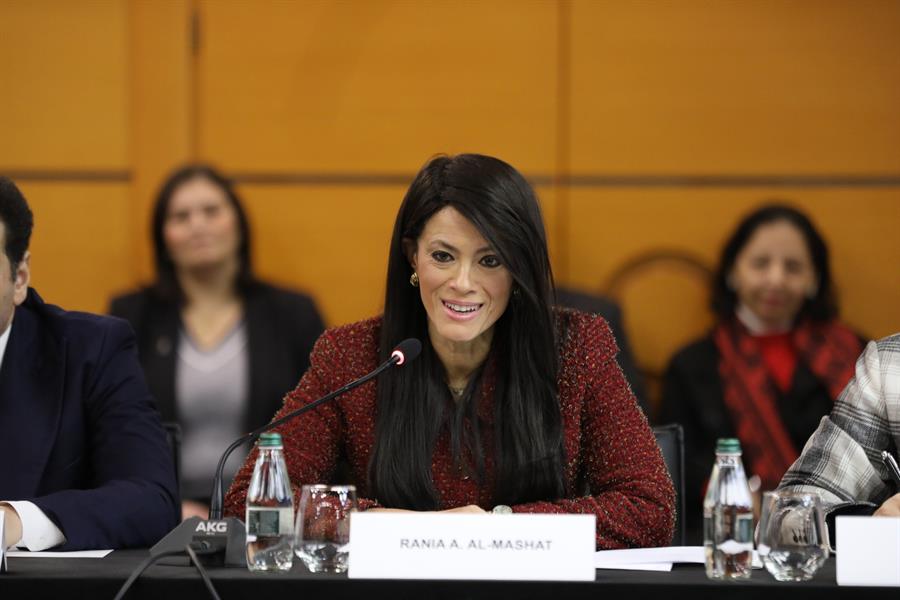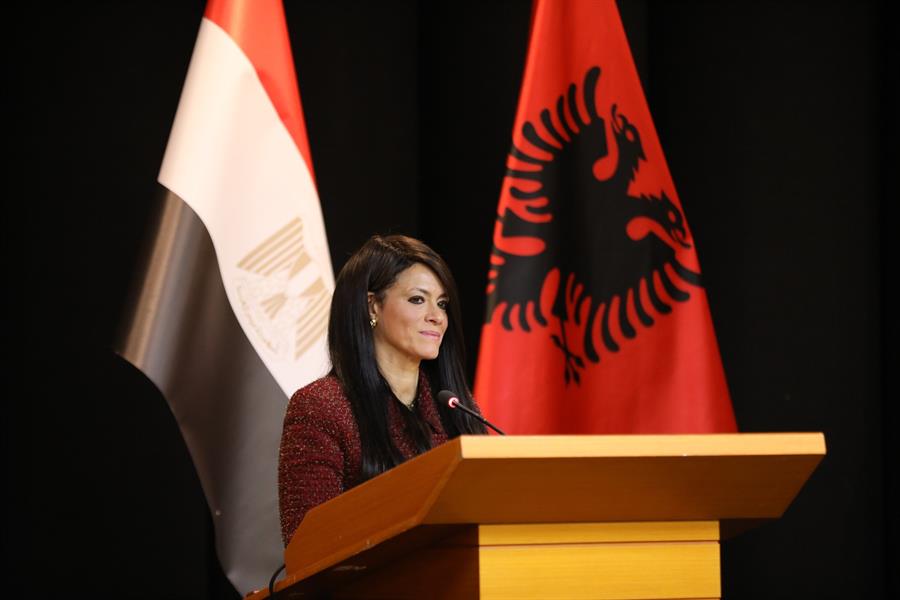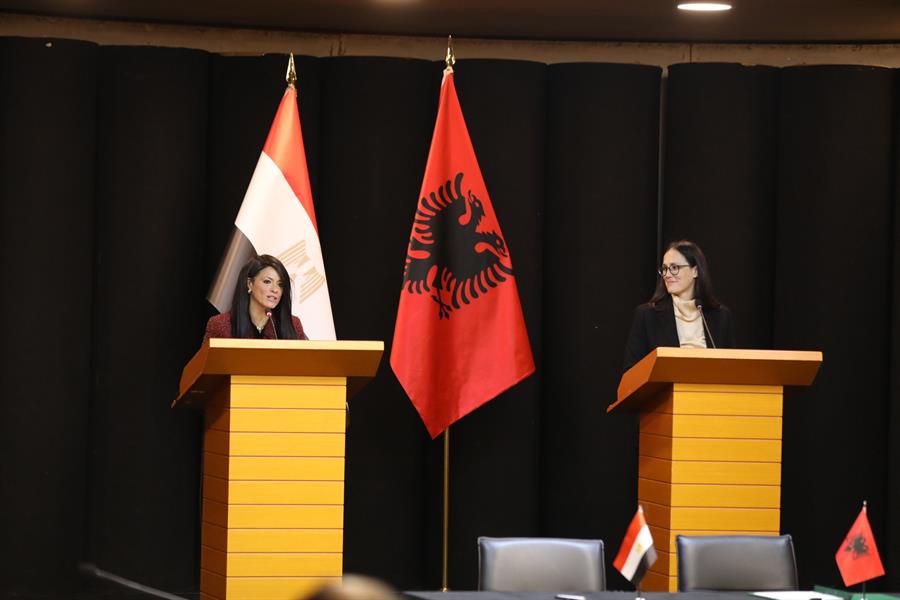The Ministry of Planning and Economic Development concludes the activities of the sixth session of the summer training program for university students

11 September 2023
The Ministry of Planning and Economic Development concluded the activities of the sixth session of the summer training program for university students, which the Ministry holds annually, in the presence of Professor Tariq Abdel Khaleq, Advisor to the Minister of Planning and Economic Development for Human Resources Affairs, and with the participation of a number of the Ministry’s leaders.
H.E. Dr. Hala El-Said, Minister of Planning and Economic Development, stressed the Ministry’s keenness to empower and support the capabilities of young people and provide them with the necessary training opportunities.
She added that the level of national development in any country depends to a large extent on the extent to which the government harnesses the potential of youth and exploits them to promote and sustain economic growth and social progress.
El-Said pointed out that ensuring the empowerment of all young people and unleashing their potential through obtaining decent work will advance progress toward sustainable and comprehensive development.
During the graduation ceremony of the second batch of the sixth cycle and the conclusion of the program, Tariq Abdel Khaleq explained that the two batches of the sixth cycle are among the best batches that have been trained since 2018 because they are determined to learn and benefit.
Abdel Khaleq thanked all the ministry leaders for helping the trainees and allocating individuals responsible for training them and conveying the ministry’s message to learn new information that they did not have, in addition to the leadership’s participation in providing approximately 17 workshops during the period of receiving the second batch of the summer training program.
Abdel Khaleq confirmed that the Ministry is keen to hold employment forums, as more than five previous forums have been held, and two upcoming forums are scheduled to be held at the American University and Cairo University. He also pointed out that the training gives participants who have the qualifications priority to work in the Ministry when opportunities are available.
The training activities for the second batch included holding about 17 workshops to introduce the Ministry’s sectors and units. It was presented by leaders of the Ministry and its affiliated bodies and representatives of each unit, in addition to organizing several field visits with the participation of students from the second batch of students from public and private universities across the Republic.
The training activities for the second batch witnessed the introduction of a workshop on the Ministry’s Political Communication Unit, which was presented by Muhammad Abu Rida.
Through this presentation, he highlighted the role of the House of Representatives and the Senate and their members.
Moreover, an overview of the sessions of the two chambers and committees was presented.
Abu Rida also touched on the formation of the House of Representatives, which consists of 448 individual members and 120 lists, 28 members by appointment, in addition to reviewing the number of members of the Senate, which amounts to 100 members and 100 lists, in addition to the members by appointment.
Abu Rida reviewed the powers of the House of Representatives and the Senate and the general powers of the Egyptian Parliament, including setting regulations, maintaining the internal system, and ensuring the independence of its members, in addition to amending the constitution and draft laws.
The group of workshops held included a workshop on the duties of the Permanent Undersecretary at the Ministry, presented by Eng. Khaled Mustafa, Permanent Undersecretary of the Ministry, explained that he represents the first permanent undersecretary in the Egyptian government because the Ministry of Planning and Economic Development is the first ministry to create this position.
The Ministry also held a training workshop for students to introduce the National Initiative for Smart Green Projects, which was presented by Ambassador Hisham Badr, the National Coordinator of the Initiative, to review the categories of the initiative, its procedures and objectives, and what took place in the activities of the second session of the initiative.
The workshop agenda also included a workshop on the role of the human development sector, which was presented by Dr. Muhammad Maghribi, Head of the Human Development Sector, to review the role of the sector and the projects that the Ministry is working on, and how to distribute investments in service projects and deliver them to citizens in their places.
Within the ministry’s infrastructure sector workshop, Dr. Nihad Morsi, head of the ministry’s infrastructure sector, reviewed the sector’s role in supporting the state’s economic sectors and its organizational structure, as well as the most important national and strategic projects that the sector is working on.
Dr. Heba Mogheib, Head of the Regional Planning Sector at the Ministry, also presented an overview of the sector and its role, as well as the definition and requirements of local development.
During the workshop held on the role of the National Institute for Governance and Sustainable Development, Dr. Sherifa Sharif, Executive Director of the Institute, spoke about the role, vision, and mission of the Institute, as well as the importance of training and capacity building.
The workshop schedule also included: A training workshop on the Programs and Performance Unit and the Decent Life Project. The Ministry’s Programs and Performance Unit team talked about the unit’s methodology and the Decent Life Project as well as incentives for excellence in performance during the workshop.
For her part, Ms. Omnia Kamal, supervisor of the Central Department of Strategic Management, reviewed the role of management in the ministry and the definition of strategic planning.
During the Egypt Award for Government Excellence workshop, Soha Saeed, Executive Director of the Award, talked about the main goal of the award and the purpose of the award by adopting innovative principles and concepts to develop government performance in the state’s administrative apparatus to achieve global leadership.
Amira Hossam, Assistant Minister of Planning and Economic Development for Sustainable Development Affairs, reviewed the definition of sustainable development and its applications at the local level. She also discussed all national projects to which the Ministry of Planning contributes and linked









